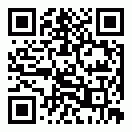Liz B. Davis is assembling a number of screencasts on Web2.0 tools on her blog, "The Power of Educational Technology," and taking requests for any additions. Current screencasts include introductions and 'howtos' on using Delicious, Flock, Flickr, Diigo, Twitter and Google Reader.
These should prove useful to busy teachers and others exploring the potential of Web2.0 and teacher mentors, ICT coordinators etc. providing support and expand the range of social networks.
Thanks, Liz.
Sunday, April 13, 2008
Monday, February 18, 2008
Experiment in Republishing
David Wiley has republished this free 14 week course "Blogs, Wikis, and New Media"as an experiment in republishing Open Courseware using Wordpress. Explore the course as is or download it and adapt to suit. (Creative Commons license)
More information about the original course, facilitation and assignments can be found at Utah State Open Courseware.
The course covers a comprehensive range of 'Web2.0' technologies including blogs, RSS, wikis, social bookmarking & photo sharing tools, folksonomies & tagging, GIS mapping, audio & video podcasts, screencasts, video sharing and mashups.
This is an amazing resource, especially for educators interested in updating their knowledge and
'maintaining a familiarity with the most recent tools and capabilities.' This resource should complement individual experimentation and personal learning as well as teacher workshops. Spread the word!
More information about the original course, facilitation and assignments can be found at Utah State Open Courseware.
The course covers a comprehensive range of 'Web2.0' technologies including blogs, RSS, wikis, social bookmarking & photo sharing tools, folksonomies & tagging, GIS mapping, audio & video podcasts, screencasts, video sharing and mashups.
This is an amazing resource, especially for educators interested in updating their knowledge and
'maintaining a familiarity with the most recent tools and capabilities.' This resource should complement individual experimentation and personal learning as well as teacher workshops. Spread the word!
Labels:
creativecommons,
teachers,
web2.0
Saturday, January 05, 2008
E-Learning Handbook
The E-Learning Handbook, developed and regularly updated by the Centre for Learning & Performance Technologies, provides a well-organised and comprehensive resource for teachers and others interested in finding out more about e-learning trends, technologies and tools. Content is readily accessible via an index of six topics with a wide range of sub-topics.
Other features of this site include a weekly bulletin, conference calendar, link to Jane Hart's E-Learning Pick of the Day and a list of their Top 100 Tools for Learning (2007) as well as the beginning of a collaborative project inviting global e-Learning professionals to submit their Top 10 Tools for Learning 2008. The E-Learning Handbook should prove useful for teachers, ICT Coordinators, Teacher-Librarians and school Leaders as schools seek to capitalise on the promised Rudd (ALP) "Education Revolution" to transform teaching and learning in Australian schools.
Recent media stories highlighting "Teachers lag in IT skills" (Adelaide Now, Jan 03, 08) bemoan a perceived gap in teacher skills and understandings and call for more investment in teacher professional development to address this critical issue. It was good to see acknowledgement by Principal, ASMS (Jim Davies) that "some of our (South Australian) teachers are leading world's best practice." Edublogger, Graham Wegner, Teaching Generation Z, is just one example of these inspirational, well-respected teachers.
Some teachers do fit the headline. Some may remain to be convinced while others lack the necessary support and struggle with the increasing demands of the profession. From my experience, it's not an age-related thing, it's more of an attitude of mind. I recently revisited Dana Huff's blog post and comments (tied to posts by Terry Freedman and Karl Fisch) on "Technological Illiteracy" (of teachers). Is the tide turning?
Massive investment in an "Education Revolution" must include strategies for teacher professional development and leadership in the Digital Age.
Other features of this site include a weekly bulletin, conference calendar, link to Jane Hart's E-Learning Pick of the Day and a list of their Top 100 Tools for Learning (2007) as well as the beginning of a collaborative project inviting global e-Learning professionals to submit their Top 10 Tools for Learning 2008. The E-Learning Handbook should prove useful for teachers, ICT Coordinators, Teacher-Librarians and school Leaders as schools seek to capitalise on the promised Rudd (ALP) "Education Revolution" to transform teaching and learning in Australian schools.
Recent media stories highlighting "Teachers lag in IT skills" (Adelaide Now, Jan 03, 08) bemoan a perceived gap in teacher skills and understandings and call for more investment in teacher professional development to address this critical issue. It was good to see acknowledgement by Principal, ASMS (Jim Davies) that "some of our (South Australian) teachers are leading world's best practice." Edublogger, Graham Wegner, Teaching Generation Z, is just one example of these inspirational, well-respected teachers.
Some teachers do fit the headline. Some may remain to be convinced while others lack the necessary support and struggle with the increasing demands of the profession. From my experience, it's not an age-related thing, it's more of an attitude of mind. I recently revisited Dana Huff's blog post and comments (tied to posts by Terry Freedman and Karl Fisch) on "Technological Illiteracy" (of teachers). Is the tide turning?
Massive investment in an "Education Revolution" must include strategies for teacher professional development and leadership in the Digital Age.
Labels:
e-Learning,
open source,
pedagogy,
teachers,
web2.0
Subscribe to:
Posts (Atom)




